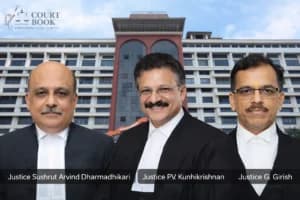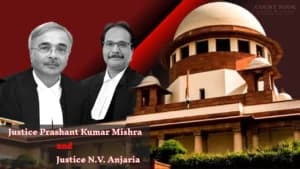The Madras High Court has set aside an arbitral award passed against Truliv Properties and Services Pvt. Ltd., directing the respondent, C. Ravishankar, to refund ₹32.4 lakh along with interest and damages. Justice N. Anand Venkatesh ruled on 6 October 2025 that the arbitrator’s findings were "patently illegal" and contrary to the principles of natural justice.
The court’s decision came after Truliv, a Chennai-based serviced-apartment company, challenged an arbitral award that had bizarrely asked it to pay nearly ₹2 crore to the landlord despite an admitted violation of a prior injunction order.
Background
The dispute arose from a lease deed dated 12 July 2019 between Truliv and C. Ravishankar for 20 residential flats in the "Sobha Serene" project in Chennai. The flats were to be used as service apartments for a period of five years, and Truliv had paid a refundable deposit of ₹32.4 lakh.
But soon after signing, Truliv received a legal notice from Sobha Developers informing it of an interim order restraining Ravishankar from alienating the property. That order, dated 27 December 2016, had been passed by another Arbitral Tribunal in an ongoing dispute between Ravishankar and Sobha Developers.
When Truliv sought clarification, the landlord allegedly went silent, later agreeing before the police to terminate the lease and refund the deposit by January 2020. The refund, however, never came.
Court's Observations
Justice Venkatesh took a hard look at how the sole arbitrator, Mr. V. Nallasenapathy, had handled the matter.
"The finding of the learned Arbitrator, on the face of it, is illegal," the court observed, adding that the arbitrator "re-wrote the contract itself," which amounted to a "patent illegality."
The judge noted that the arbitrator wrongly treated the lease deed as oral and invalid merely because it was unregistered.
"If the document is inadmissible, it can still be relied upon for collateral purposes under the Registration Act," the court clarified.
He also highlighted the contradictory reasoning by the arbitrator-accepting the respondent's undertaking before one tribunal as valid during interim proceedings but rejecting it while giving the final award.
"Such self-contradiction shocks the conscience of this Court," Justice Venkatesh said firmly.
On another point, the bench said,
"The Arbitrator's conclusion that rent arrears were payable from September 2019 to May 2023 is more in the nature of giving a premium for illegality committed by the respondent."
The court further held that the landlord's concealment of the injunction and breach of his earlier undertaking showed "moral turpitude." Truliv, the judge added, had suffered mental agony and financial loss because of the respondent’s deceit.
Decision
Setting aside the arbitral award dated 31 May 2025, the Madras High Court directed C. Ravishankar to:
- Refund ₹32,40,000 with 12% interest from 8 October 2019 till realization.
- Reimburse furnishing expenses of ₹1,77,086 with 12% interest.
- Refund brokerage fees of ₹3,18,600 with 12% interest.
- Pay ₹2,50,000 as damages for breach of contract.
- Bear litigation costs of ₹2,50,000.
The court concluded that the arbitrator's decision "fell foul of Section 34(2)(b)(ii) and Section 34(2A)" of the Arbitration and Conciliation Act, 1996. With that, the High Court closed the accompanying stay application and granted full relief to the petitioner.
The final lines of the order carried the unmistakable weight of judicial disapproval:
"The finding disregards the most basic notions of justice."
Case Title: Truliv Properties and Services Private Limited vs C. Ravishankar















